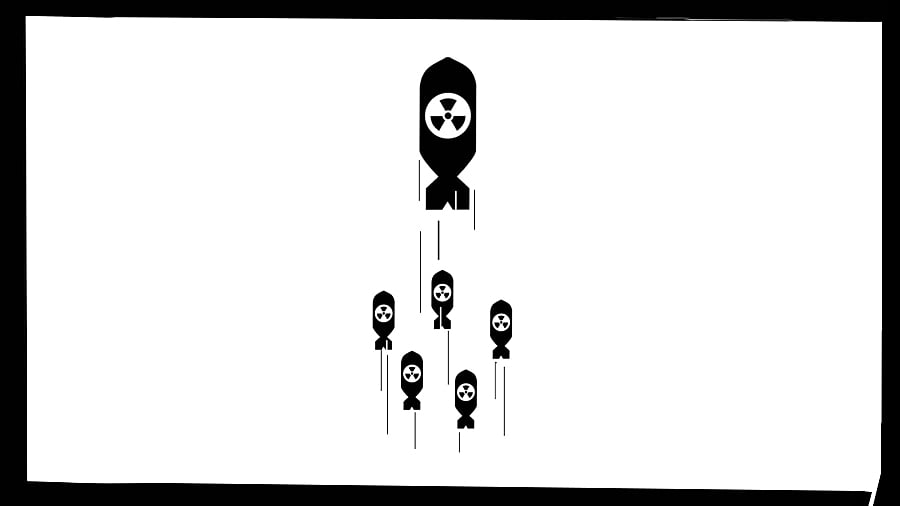
In a successful deception campaign, Israel and the US accomplished a long-held military objective of striking Iran’s nuclear facilities on the early morning of June 22. With damage assessment still pending, it remains unknown the success of this military operation. In its report to the International Atomic Energy Agency (IAEA), Iran has claimed no radiation leak at the three sites – Fordow, Natanz, and Isfahan – struck by the US Air Force. In his address to the United Nations, the head of IAEA, Rafael Grossi warned of unthinkable destruction and conflict if the available window of opportunity for a diplomatic solution is overlooked and an end to the nuclear non-proliferation regime which has safeguarded international peace and security for more than fifty years. This is a development related to the tactical and operational level. From a grand strategy perspective, nuclear weapons, not just of Iran and Pakistan but also possessed by others, are a matter of grave concern given their direct correlation with the idea of sovereignty and the new world order in the making.
Nuclear weapons first established themselves as significant during the Second World War. Japan’s superior military strategy was to first establish a foothold on the Asian mainland, and then defend this area with land-based aviation. This strategy had put the Allied Forces in a precarious military situation; they were at a disadvantage while moving their logistics at sea around the globe and were finding no success in inflicting a decisive defeat on the Japanese forces in mainland Asia. Japan’s war efforts were located in Japan.
To accomplish its military objectives within a limited time frame to minimise human casualties, the US decided to use nuclear weapons, for the first time, against targets in Japan – the centre of gravity. Yet, the destruction unleashed by these weapons was massive, and hence, following the war, they were reduced to defensive strategic weapons aimed to constitute strategic deterrence. The proliferation of nuclear weapons into the hands of multiple nations eliminated large-scale conventional armed conflict between major powers. To this day, there is no case of two nuclear-armed powers getting into a full-scale direct armed conflict with each other. Nuclear weapons thus have become a guarantor of state sovereignty and the quest for them by non-nuclear powers is now being managed by an international regime on nuclear nonproliferation which encourages the peaceful use of nuclear physics but denies further acquisition and development of nuclear weapons.
A time of transition
We are now at the end of a period of history which marks an end to an era of the sovereign nation-State. The era of sovereign nation-states began in Europe with the peace treaty of Westphalia, wherein a sovereign commanded absolute authority in all matters within his territory and engaged with others as equals. The present international system is based on this development. The advent of modern technology, especially in the 19th century, for the first time led to a situation when the whole world was organised as a closed political system. While a closed political system initially thrived on a model that was constituted by independent sovereign states, with further improvement in science and technology, the call for further integration and globalisation of the political system challenged the traditional notions of sovereignty.
While economic globalisation in the 20th century succeeded initially, it remains incomplete as we now witness with the ongoing trade wars. The term tariff war is the acknowledgment of
the boundaries between nation-states that have become a hindrance to
complete economic globalisation. A closely related call for political globalisation is farthest from realisation in the given times.
The ongoing trade wars are but symptoms of a world order that is making a transition from a sovereignty-based system to something strikingly new. This transition calls for political globalisation along with economic globalisation. Nuclear weapons, which have established themselves as the sole guarantor of a sovereign’s very survival within the international system, are now seen as a hindrance – they obstruct this transition to a post-sovereign world order. In fact, from a historical perspective, there never has been a true world order, and according to Henry Kissinger, we are perhaps for the first time at the cusp of realising an all-encompassing world order. In this regard, every effort will be made to eliminate the role of nuclear weapons and their relationship with sovereignty. The entire gambit of nuclear disarmament and non-proliferation is aimed at sovereignty, not nuclear weapons.
Following the neutralisation of Iran’s quest for nuclear weapons and perhaps, Pakistan’s nuclear weapon stockpile, the process will continue to include the others through various means. A developing country such as India, which is engaged in realising its national objectives of Viksit Bharat by 2047, will need to make a choice and adapt to the evolving situation and the ongoing transition. When you are the victim of a transition, it is important to lead that process of transition. The situation presents India the role of a leader as it navigates the transition to a new world order.
(The writer is a lecturer at the Sichuan International Studies University, China)